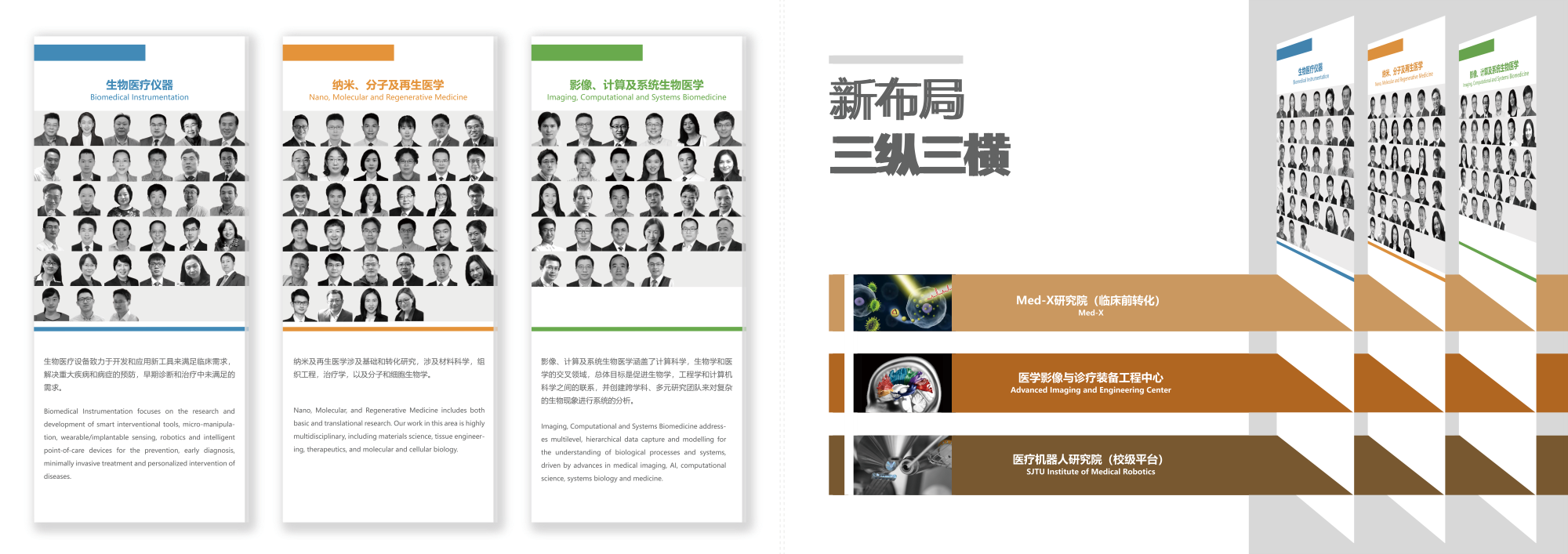


The School of Biomedical Engineering (BME) at Shanghai Jiao Tong University (SJTU) was founded in April 2011, but the history of our BME program can be dated back to 1979, when the subject of biomedical instrumentation was first established. It has been consistently ranked at the forefront in China by the Ministry of Education, based on national assessment conducted every five years. By leveraging the unique engineering strength of SJTU and significant clinical resources of our teaching hospitals, the school has placed a particular emphasis on “interdisciplinary, international collaboration, and concrete clinical applications". In 2019, our undergraduate program was certified by the Accreditation Board for Engineering and Technology (ABET), which accredits college and university programs in disciplines of applied and natural science, computing, engineering and engineering technology to ensure the highest education quality for our students and prepare them to enter a competitive global workforce. This is the first BME program in China certified by ABET, demonstrating its quality and international standard. It is also among the first to be classified into the top tier programs by the Ministry of Education.

Our research has three main major themes: 1) biomedical instrumentation; 2) nano, molecular and regenerative medicine; and 3) imaging, computational and systems biomedicine. To nurture the new generation engineers and scientists in BME, our program has focused on the ability of the students to master and synthesize knowledge across different disciplines with in-depth understanding of the human and societal needs from different cultures and economic background.

Cultivation of new talents has been the core of our education program. We have been exploring new models of training to prepare our students to become the future leaders in BME with strong social responsibility and intellectual intensity required to meet the new challenges of our society. For research training, we have developed a curriculum that combines classroom instruction and hands-on research.. Close partnership with clinical collaborators provides a strong foundation for translating advances to first clinical use. The students work closely with our faculty and actively contribute to our mission of scientific discovery, innovation, and translational research that transform human health.
The School was among the first at SJTU to establish the faculty tenure system and encourages our staff to engage in original research that addresses unmet clinical needs and has tangible translational values. To position the BME program at the cutting edge of biomedical engineering, under the auspices of the “Introducing Talents of Discipline to Universities Program” by the Ministry of Education, an International Academic Committee was appointed in 2010, with internationally renowned scientists and biomedical engineers. The Committee has played a pivotal role in strategic planning, international talent recruitment and junior faculty development. The Committee now has 12 members, including Professor Feng Dagan from Australia, Professor Andrew Laine from Columbia University, Professor Nitish Thakor from Johns Hopkins University, and Professor Robert Reiner from ETH Zurich. To compete at an international level, our students are encouraged to register in different dual degree programs or short exchanges. These include, for example, the popular programs jointly managed with the KTH Royal Institute of Technology (Sweden), Heidelberg University (Germany), Northwestern University (US), and Jones Hopkins University (US).

The School of Biomedical Engineering is constantly responding to socioeconomic challenges and new technological trends and forging ahead with pioneering efforts and innovative spirit. We strive to explore, innovate, and educate where the healthcare needs, opportunities, and societal values are, and would be in the future. Supported by our focused research themes and state-of-the-art technological platforms, the School is expected to make significant contribution to the development of new diagnostic and treatment regimens in brain diseases, cancer, and cardiovascular diseases, supported by both national and international collaborations.